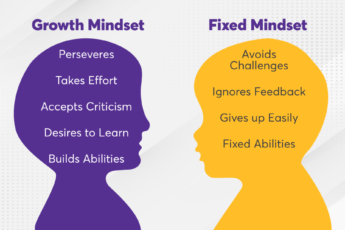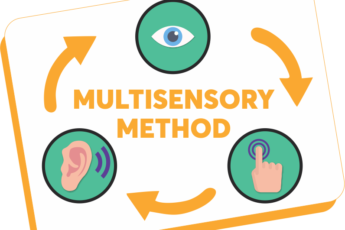The Importance of Continuous Professional Development for Teachers

Teachers have always been at the forefront of the education system, greatly responsible for shaping young minds and preparing them for life. With the internet and other technologies taking over, the education system is changing considerably. Online classes and virtual schools have replaced some of the old classroom setups. Mobile devices and electronic documents have elevated note-taking to a whole new level. Educators now have to fully embrace the technology revolution to keep their students ahead of the curve.
Teachers who don’t engage in continuous professional development can fall behind their peers and feel less confident in their ability to provide a great learning environment for students. Continuous Professional Development helps teachers keep up with the latest developments in their field. It means they can provide more engaging lessons relevant to today’s students. It also allows them to develop new skills and techniques that will help them become better educators overall.
The most common type of professional development is on-the-job training. In this, the teachers learn how to use new technology or techniques while working with students. This type of training often occurs through workshops or classes offered by professional organizations.
Other types of Professional Development include:
- Mentor programs in which experienced educators work one-on-one with new teachers to give them advice and guidance about how to improve their teaching skills
- Summer institutes that provide intensive courses over several weeks
- Internships where new teachers work under the supervision of an experienced mentor who guides them through the process of teaching a class for a set period.
- On-site programs where teams from different schools come together for workshops or seminars focused on specific topics, like classroom management or instructional strategies.
Instead of simply observing, teachers committed to continuing their growth and development engage in a myriad of professional opportunities. They seek conferences, workshops, online training classes, or e-learning courses to expand their knowledge and skills.
With Continuous Professional Development, Teachers Can:
✏️ Learn New Skills
Continuous Professional Development allows teachers to learn new skills and techniques. Teachers who take part in professional development courses often learn how to improve their teaching methods and techniques. They also comprehend how to create lesson plans and other resources that can be used in the classroom. This helps them improve their ability as educators and helps them better teach their students.
Besides, teachers also experience more confidence in their teaching abilities because they know they are up to date with the latest developments in education. This allows them to feel more comfortable when teaching a new topic or concept, making it easier for them to engage with their students and explain concepts clearly.
✏️ Better Understand Student Needs
Effective professional development programs help teachers identify learning objectives for each lesson before they begin teaching it. They also allow teachers to reflect on how well-designed lessons met their objectives, including how much time was spent on each objective, what worked well, why specific techniques were successful or unsuccessful, etc. The goal is to make every lesson as effective as possible by identifying what works best with different groups of students at different times in their education.
✏️ Increase Knowledge about Effective Practices
There are so many new initiatives being implemented in schools every year, along with the ongoing challenges faced by all educators. With Continuous Professional Development opportunities, teachers get access to information about these initiatives and how they might impact their classroom practice.
Additionally, teachers have better relationships with their colleagues and other professionals because they understand how other people work and think about specific topics or issues related to teaching. This can help them collaborate with other professionals on projects at school or within the local community, which means there is more opportunity for students to benefit from their expertise too!
Professional Development Opportunities
Continuous Professional Development allows teachers to find ways to improve their teaching style and increase their knowledge base. This means there is always an opportunity for teachers who want to learn more about teaching or expand their knowledge base on a particular subject matter or topic area, whether it’s math or science or another subject area applicable in the classroom setting. Continuous Professional Development allows teachers to find opportunities that they may not have otherwise found if they weren’t participating in these ongoing efforts.
Teachers are responsible for the well-being of their students and for ensuring that they succeed in their studies. With professional development, teachers can learn new ways to engage with students so they don’t feel like they’re just lecturing at the front of the room. They can also learn how to work with children from different backgrounds than them—for example, if they’re teaching English as a second language, which is often required in most schools across rural India today.
Through these mechanisms, and more, Continuous Professional Development helps teachers stay at the forefront of an ever-evolving education landscape, and help young learners realize their full potential.
Anganwadi workers are women who work in government-run childcare centers across India. A large number of these women come from low-income households themselves, and therefore face financial constraints when it comes to completing their education or acquiring new skills that could help them improve their quality of life. Square Panda India’s Anganwadi Workers Upskilling Program aims to empower Anganwadi workers, enabling teachers to upskill their talent and knowledge to help them deliver better services, while our Educator Empowerment Programs equip teachers with the skills and knowledge required to tackle the challenges of the 21st century.
To know more, visit ecce.squarepanda.in
Here are some useful videos to explore the topic further:
Prerequisites of a Preschool Teacher
Supporting Teachers’ Continuous Professional Development with Edtech
How To Support Educators In Their Changing Roles
You may also be interested in reading some of our blogs on teacher training:
3 Things Teachers can do to Improve Teaching Kindergarten Online
4 Ways Formative Assessments Can Enhance Your Teaching
Creating Self-Paced Classrooms through Curriculum Design
We hope that you enjoyed our post on National Curriculum Framework. If you have any tips or suggestions please leave a comment below. If you would like to collaborate with us, you can drop us a mail on marketing@squarepanda.in.
Follow us so that you never miss out on any updates:
Facebook | Twitter | LinkedIn | Instagram | YouTube | KOO




Leave a Comment